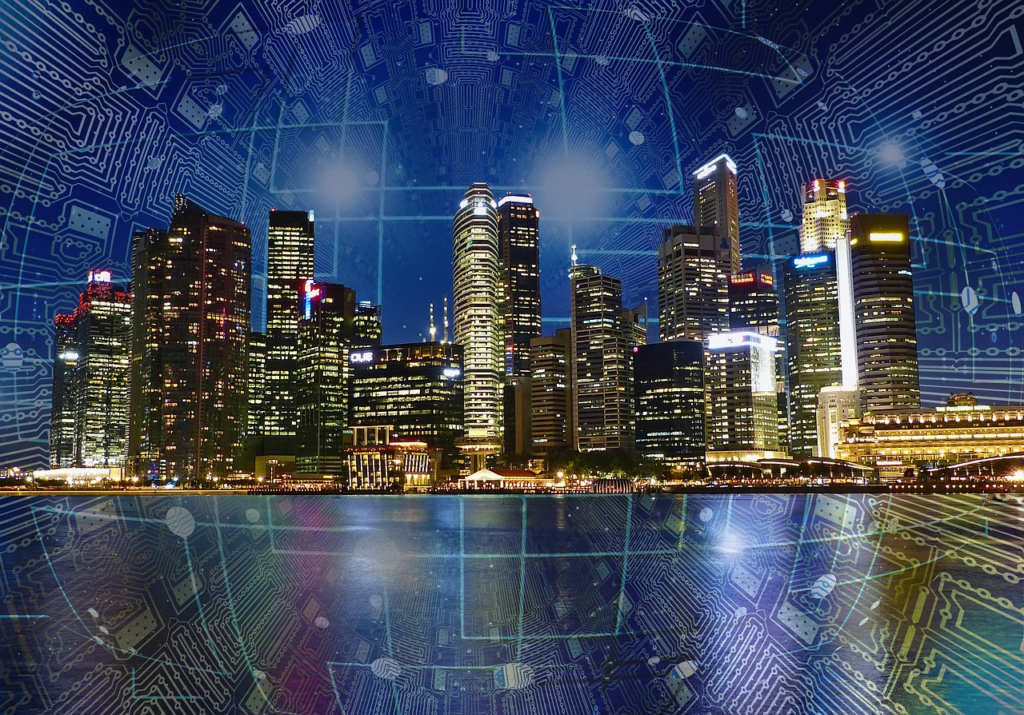Internet of Things (IoT) technologies are transforming municipal operations and community infrastructure through connected sensors and data-driven automation. As cities seek to innovate services, reduce costs, and engage citizens, IoT solutions build smarter cities prepared for future needs. This article explores key applications of IoT across municipal functions and how integrated platforms act as force multipliers.
Streamline Public Transit And Traffic Flow
Extensive urban sensor networks tracking vehicles, ridership, and routes allow for the optimization of public transit efficiency in real-time. IoT transportation analytics tools study traffic patterns to sync signals, alert commuters, suggest faster routesand identify improvements. Vehicle tracking enhances dispatching. Riders access digital arrival times and payment options. Data analysis bolsters urban mobility. Integrating this transportation data on collaborative platforms informs better systemic planning as well.
Boost Infrastructure Planning And Maintenance
Municipal infrastructure relied on educated guesses about asset lifecycles previously. Now IoT sensor data provides objective usage and deterioration insights to guide just-in-time maintenance. Sensors monitor infrastructure conditions, notifying officials when preventative repairs avoid bigger issues. IoT data becomes infrastructure intelligence to strategically allocate budgets. Centralizing infrastructure sensor data allows comprehensive capital planning.
Improve Public Safety And Emergency Response
Interconnected surveillance cameras, gunshot detection microphones, information-sharing networks, and vehicle tracking assist law enforcement monitoring, analysis, and dispatching for swifter response times. IoT boosts first responder effectiveness, with smart vehicle routing, integrated communications, location tracking, and advanced 911 systems saving lives. Unified crime mapping and statistics analysis further improve public safety policies.
Monitor Utilities Usage And Performance
Water, gas and electric smart meters allow tracking real-time consumption while optimizing distribution and identifying leaks faster. Automated meter readings enable usage-based billing without manual meter checks. Sensors along pipelines detect flow irregularities, pressure faults, and leaks for preventative resolution. IoT boosts efficiency and sustainability. Converged smart meter capabilities and leak monitoring optimize utilities planning as populations grow.
Resolve Urban Parking Challenges
On-street smart parking sensors allow real-time space availability analysis to guide drivers to open spots quickly. Smart meters accept mobile payments and adjust dynamically by location. Back-end data improves parking planning and pricing. APIs support third-party apps integrating parking payment, navigation, and enforcement. Less circling reduces congestion. Broader parking usage data patterns generated by IoT inform infrastructure and development plans.
Enhance Waste Management Operations
IoT enables intelligent routing and tracking of garbage trucks while monitoring bin levels. Automated pickup alerts and requirements reporting improve service. Weight sensors on trucks assist in fair usage-based billing and identify overloaded vehicles. Outsource tasks use verified proof-of-service data. Better waste tracking improves planning as well. Waste IoT analytics enhances recycling initiatives and identifies service gaps.
Engage Citizens With Interactive Public Spaces
Smart city elements boost public engagement and enjoyment of community spaces. Interactive digital kiosks provide tourist info and citizen service access. Free public WiFi along with charging stations make visiting areas more user-friendly. Responsive lighting and green space sensors enhance ambiance responsive to activity levels and needs. Surveys at kiosks provide direct citizen feedback to the government.
Centralize Operations Insights With Smart City Platforms
Fragmented legacy systems impede deriving value from siloed municipal data sets. Converging sensors, assets, workflows and data onto collaborative smart city platforms integrates information while applying analytics for operational optimization. Unified municipal software solutions make cities data-driven. Smart city platforms further allow convenient public access to non-sensitive municipal data and services through web/mobile apps.
Leverage 5G Connectivity Improvements
Fifth-generation wireless networks dramatically expand IoT capabilities with faster speeds, higher device capacity, and lower latency connectivity. Municipalities are working closely with telecom providers to capitalize on the benefits 5G networks offer smart cities through enhanced mobility, infrastructure, and service innovations. The rollout of 5G promises to revolutionize urban life this decade.
Prioritize Cybersecurity And Data Privacy
While IoT generates invaluable municipal data, cities must implement rigorous data security, controlled access policies, encryption, and cyber threat monitoring to safeguard sensitive system information and citizens’ privacy as sensor and data volumes multiply. Adhering to best practices and expertise for data governance, security, sovereignty, and transparency maintains trust.

